The Path to Spiritual Awakening through Meditation

Meditation has been a tool for spiritual awakening for centuries. It offers a path to connect with one’s inner self and realize a higher truth beyond the physical world. Meditation enables individuals to look beyond their ego and tap into their spiritual awareness. This process is important in reaching a state of self-realization and oneness with the universe.
To embark on the path of spiritual awakening through meditation, it is vital to develop a regular practice routine. Consistency is key in meditation, and building a daily ritual will help to cultivate a deeper connection with oneself. It starts with setting aside a few minutes each day to simply sit and focus on one’s breath. This simple act of mindfulness can help to quiet the mind and bring a sense of peace and clarity.
As one progresses in their meditation practice, they can explore different types of meditation techniques, each with their unique benefits. Mindfulness meditation encourages individuals to be present in the moment and observe their thoughts without judgment. Transcendental meditation involves the repetition of a specific mantra to bring about a sense of relaxation and stillness. Loving-kindness meditation focuses on cultivating feelings of love and compassion towards oneself and others. Chakra meditation targets specific energy centers in the body to balance their flow. Yoga meditation combines breathwork and physical poses to enhance mindfulness and relaxation.
Having a meditation teacher can be helpful in navigating the meditation journey. They can provide guidance and support in developing a practice that is tailored to one’s personal needs and goals. However, it is important to remember that meditation is a personal journey, and each individual’s experience will be unique.
Consistency can be challenging as daily life can become busy and distractions arise. It is important to find solutions to maintain a consistent practice. One solution can be to create a designated space for meditation, free from distractions. Another solution is to set specific times of day for meditation, such as upon waking or before bed.
The science behind meditation and spiritual awakening is also worth exploring, with numerous studies demonstrating the positive effects of meditation on the brain and overall well-being. Meditation can also foster creativity and inspiration, nurturing one’s spirituality through art, music, and nature.
Ultimately, the path to spiritual awakening through meditation is a personal journey that requires patience, discipline, and an open mind. It can lead to a deeper connection with oneself and the universe beyond the physical realm.
The Benefits of Meditation for Self-Realization and Oneness
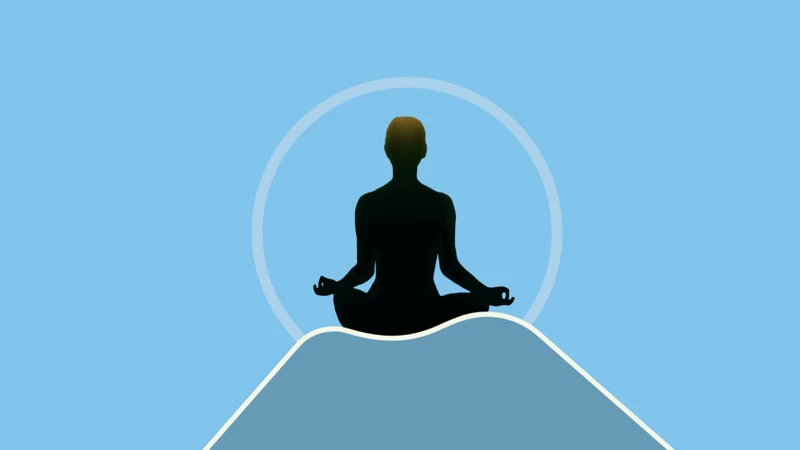
Meditation is a powerful tool that can help individuals achieve self-realization and experience a sense of oneness with the universe. It provides a range of benefits that can positively impact physical, emotional, and mental well-being. By training the mind and cultivating inner stillness, individuals can gain greater insight into themselves and the nature of reality. Here are some of the key benefits of meditation for self-realization and oneness:
Stress reduction: Meditation is widely recognized as an effective tool for reducing stress and anxiety. Regular meditation can help individuals cultivate a greater sense of calm and inner peace.
Better focus and concentration: Meditation can also improve focus, concentration, and cognitive function. By training the mind to stay present and focused, individuals can enhance their productivity, work efficiency, and memory.
Increased self-awareness: Meditation can help individuals gain a greater understanding of themselves and their own thought patterns. Through self-reflection and inner observation, individuals can identify habitual negative patterns and work towards healing and personal growth.
Emotional regulation: Meditation can help individuals regulate their emotions and develop a greater sense of emotional intelligence. By practicing mindfulness and self-awareness, individuals can learn to respond to difficult emotions with greater equanimity and compassion.
Connection to the spiritual: Meditation is also a powerful tool for connecting to spiritual energy and experiencing a sense of oneness with the universe. By going beyond the ego-mind and connecting with the deeper essence of their being, individuals can experience a sense of interconnectedness with all things.
Meditation is a potent tool for self-realization and oneness. By cultivating inner stillness, individuals can gain greater insight into themselves and the world around them. It provides a range of physical, emotional, and mental benefits that can support individuals on their spiritual journey towards awakening and inner peace.
Meditation Techniques to Enhance Your Spiritual Practice

Embarking on a spiritual journey can often lead one to a maze of endless techniques to enhance their practice. It can be overwhelming and confusing to choose the right meditation technique that aligns with your beliefs and goals. However, meditation is a valuable tool that can support your path towards self-realization and oneness. It not only calms your mind but also allows you to connect with your inner self and the world around you. In this section, we will explore some popular meditation techniques that can help you deepen your spiritual practice and find the inner peace you seek. Let’s delve into the world of meditation techniques and discover the wonders they hold.
Mindfulness Meditation
One type of meditation that has gained widespread popularity and recognition is mindfulness meditation. This technique involves focusing on the present moment, paying attention to your thoughts and surroundings without judgment or distraction. Mindfulness meditation can help you develop awareness, increase concentration, and reduce stress.
To practice mindfulness meditation, find a quiet place to sit comfortably, either on a cushion or in a chair. Close your eyes and take a few deep breaths, allowing your body to relax. Begin by bringing your attention to the sensation of your breath as you inhale and exhale. Start to notice any thoughts that arise, acknowledging them without becoming attached to them. Imagine your thoughts as clouds floating past you in the sky, without holding onto them or pushing them away.
Here is an example of a simple html table highlighting the steps of mindfulness meditation:
| Step | Description |
|---|---|
| 1 | Sit comfortably with eyes closed |
| 2 | Focus on the sensation of your breath |
| 3 | Notice any thoughts that arise |
| 4 | Acknowledge thoughts without becoming attached to them |
| 5 | Imagine thoughts as clouds floating by |
Practicing mindfulness meditation regularly can help you cultivate self-awareness and reduce the negative effects of stress and anxiety. It can also enhance your focus and concentration, making it easier to complete daily tasks and responsibilities. By committing to a consistent mindfulness meditation practice, you can experience deeper levels of relaxation and inner peace.
Transcendental Meditation
Transcendental Meditation, also known as TM, is a meditation technique that focuses on achieving inner peace and relaxation through the use of “mantras,” which are sacred sounds or phrases repeated silently in the mind. TM was founded by Maharishi Mahesh Yogi in the 1950s and gained popularity in the 1960s and 1970s as a form of stress relief and self-improvement.
The practice of TM involves the following steps:
| Step 1: | Sit comfortably with your eyes closed and repeat your chosen mantra silently in your mind. |
| Step 2: | Focus your attention on your breath and allow your mind to become still. |
| Step 3: | If your mind begins to wander, gently bring your attention back to your mantra and your breath. |
| Step 4: | Continue in this way for 20 minutes, twice a day. |
The benefits of TM include:
– Reduced stress and anxiety
– Improved mental clarity and creativity
– Increased focus and concentration
– Enhanced spiritual growth and self-realization
– Improved overall health and well-being
Unlike other meditation techniques, TM requires a certified teacher to teach the method and provide a personalized mantra for each individual practitioner. The cost of TM instruction can vary depending on the teacher and location.
Some people criticize TM for being overly commercialized and expensive. However, many practitioners attest to the benefits of TM and its ability to promote inner peace and self-realization. It is important to note that TM is not a religious practice and can be practiced by anyone regardless of their beliefs.
If you are interested in trying TM, it is recommended to find a certified teacher and attend an introductory course to learn more about the technique and its benefits. With consistent practice, TM can help cultivate a deeper sense of inner peace and harmony in your daily life.
Loving-Kindness Meditation
Loving-Kindness meditation, also known as Metta meditation, is a practice designed to cultivate compassion towards oneself and others. This practice involves generating positive feelings and well-being towards oneself and others, even to those who have caused harm or difficulty. It involves sending out a series of well-wishes or intentions towards oneself, loved ones, neutral people, difficult people, and all beings.
Benefits of Loving-Kindness Meditation:
–Increases emotional intelligence: By fostering feelings of love and kindness, this meditation may increase emotional intelligence and empathy towards oneself and others.
–Reduces negative emotions: This meditation can help reduce negative emotions such as anger, resentment, and envy.
–Boosts overall well-being: The practice of Loving-Kindness meditation helps create a sense of well-being and happiness, which can positively impact overall sense of personal fulfillment and life satisfaction.
–Enhances social connections: When we develop feelings of loving-kindness towards others, it can enhance our sense of social connectedness and strengthen our interpersonal relationships.
How to Practice Loving-Kindness Meditation:
1. Sit in a comfortable position in a quiet place, with eyes closed.
2. Begin by picturing yourself and repeat the following phrase silently to yourself, “May I be happy, may I be healthy, may I be safe, and may I live with ease.”
3. Picture someone you love unconditionally, such as a family member or dear friend. Repeat the same phrase as you hold this person in your mind.
4. Picture someone who is neutral to you, such as a stranger or work colleague. Repeat the same phrase as you hold this person in your mind.
5. Picture someone with whom you have difficulty, someone who has caused harm. Repeat the same phrase as you hold this person in your mind.
6. Finally, extend this well-wish to all beings, silently repeating the phrase, “May all beings be happy, may all beings be healthy, may all beings be safe, and may all beings live with ease.”
Tips:
– Start with a five-minute practice and gradually increase the time as you feel more comfortable with the practice.
– If you struggle with visualizing people in your mind, you can use physical images or photographs to assist you.
– Practice self-compassion, reminding yourself that this is a journey and it’s okay to take time to cultivate feelings of loving-kindness.
Chakra Meditation
Chakra meditation is a popular form of meditation that focuses on the seven energy centers, or chakras, in the body. Each chakra corresponds to a specific part of the body and has its own unique characteristic.
To begin a chakra meditation, it’s essential to understand each chakra’s location and its role in the body. Below is a table highlighting the seven chakras:
| Chakra | Location | Characteristics |
|---|---|---|
| Root Chakra | Base of the spine | Grounding, stability, survival |
| Sacral Chakra | Lower abdomen | Creativity, sexuality, pleasure |
| Solar Plexus Chakra | Upper abdomen | Confidence, identity, personal power |
| Heart Chakra | Center of the chest | Love, compassion, connection |
| Throat Chakra | Throat | Communication, self-expression, truth |
| Third Eye Chakra | Forehead, between the eyes | Intuition, clarity, perception |
| Crown Chakra | Top of the head | Spirituality, enlightenment, connection to the divine |
During a chakra meditation, you focus on each of the seven chakras, starting with the root chakra and moving upward to the crown chakra. For each chakra, you visualize the chakra spinning, and you repeat a specific mantra or affirmation.
Chakra meditation is a powerful tool for balancing your energy and promoting overall physical, emotional, and spiritual wellness. By focusing on each chakra individually, you can address any imbalances or blockages in your energy flow, leading to greater harmony and well-being in your life.
However, it’s important to note that chakra meditation should not be used as a substitute for medical care. If you have any health concerns, seek the advice of a licensed healthcare provider before beginning any new meditation practice.
Yoga Meditation
Yoga meditation is a popular and effective technique for spiritual awakening that combines physical postures, controlled breathing, and mindfulness to cultivate a state of inner peace and self-awareness. This practice has its roots in ancient Indian traditions and has gained tremendous popularity worldwide as a way to achieve mental and physical health, as well as spiritual growth.
The Benefits of Yoga Meditation
The benefits of yoga meditation are numerous and have been well documented by scientific research. Here are some of the key benefits you can expect from a regular yoga meditation practice:
- Stress Relief: Yoga meditation is especially effective in reducing stress and anxiety levels, as it helps to calm the mind and relax the body. Through controlled breathing and physical postures, this practice can help lower cortisol levels and improve overall well-being.
- Physical Health: The physical postures of yoga meditation have many benefits, including improved flexibility, strength, and balance. Regular practice can also help to reduce inflammation, boost immunity, and lower blood pressure.
- Mental Clarity: Yoga meditation can help to sharpen your focus, increase your mental clarity, and create a sense of inner stillness. This can lead to improved concentration, creativity, and productivity.
- Self-Awareness: With regular practice, yoga meditation can help you develop a deeper awareness of your thoughts, emotions, and physical sensations. This increased self-awareness can help you understand yourself better, improve your relationships with others, and cultivate a sense of compassion.
- Spiritual Growth: One of the primary goals of yoga meditation is to achieve spiritual awakening and oneness with the universe. Through regular practice, you may begin to experience a sense of connectedness with all things and a deep understanding of your place in the world.
How to Practice Yoga Meditation
To practice yoga meditation, you will need to find a quiet and comfortable space where you can sit or lie down without any distractions. Here are some basic steps to get started:
- Set your intention: Begin by setting your intention for your meditation practice. You may choose to focus on a specific goal or simply be present in the moment.
- Get into a comfortable position: Choose a position that feels comfortable for you, whether that’s sitting cross-legged on the floor, on a cushion, or lying down on your back. Make sure your spine is straight and your body is relaxed.
- Focus on your breath: Begin by focusing on your breath. Pay attention to the sensation of your breath moving in and out of your body. If your mind begins to wander, gently bring your attention back to your breath.
- Add physical postures: Once you are comfortable with focusing on your breath, you can begin to add physical postures to your practice. There are many different yoga postures to choose from, so find ones that feel good for your body and practice them mindfully.
- End with relaxation: Finally, end your practice with a period of relaxation. Lie down on your back and allow your body to sink into the floor. Focus again on your breath and allow your mind and body to fully relax.
Yoga meditation is a powerful tool for spiritual growth and self-awareness. With regular practice, you can experience the many benefits of this practice and cultivate a deeper connection with yourself and the universe.
The Role of a Meditation Teacher in Your Spiritual Journey
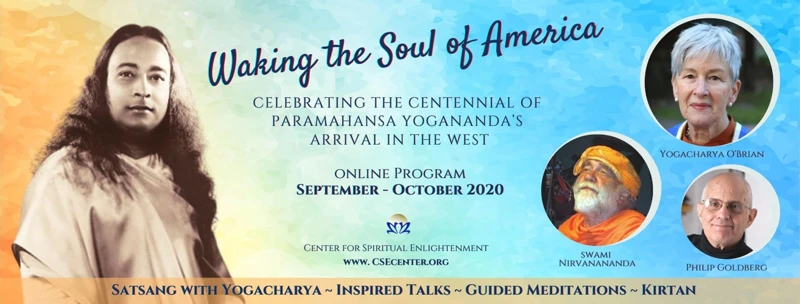
Embarking on a spiritual journey can be a challenging and complex undertaking. Meditation is a powerful tool that can enhance and accelerate this process, but the guidance and support of a meditation teacher can be invaluable in helping you navigate the path. A meditation teacher is someone who has dedicated years of their life to the practice of meditation, and has received training and certification to teach others.
Benefits of a Meditation Teacher
The benefits of having a meditation teacher are numerous. Firstly, a teacher can help you establish a consistent meditation practice. They can help you create a routine that works for you, and provide guidance on how to cultivate a deep and meaningful practice. Additionally, a meditation teacher can help you navigate the challenges and obstacles that arise during meditation. For example, if you struggle with staying focused or finding the right technique for yourself, a teacher can help you overcome these challenges.
The Role of a Meditation Teacher
The role of a meditation teacher goes beyond simply providing instruction on how to meditate. They can be a source of inspiration and motivation, helping you to stay committed to your practice even when things get tough. A good teacher can also help you to understand and integrate the insights and experiences that arise during meditation. They can help you to develop a deeper understanding of yourself and the nature of reality, and provide guidance on how to apply this wisdom in your daily life.
Meditation Teacher and Community
Another benefit of working with a meditation teacher is the sense of community and connection that can arise. Meditation can be a solitary practice, but working with a teacher and attending group meditation sessions can help to foster a sense of community and belonging. This can be especially important for those who are just beginning their spiritual journey, or for those who feel isolated in their practice.
Choosing a Meditation Teacher
When choosing a meditation teacher, it’s important to find someone who resonates with your values and goals. Look for someone who has a deep understanding of the practice, and who has experience working with students. It’s also important to find someone who you feel comfortable with and can trust.
A meditation teacher can play an invaluable role in your spiritual journey. They can provide guidance, support, and inspiration, helping you to develop a consistent and meaningful practice. If you’re considering embarking on a meditation practice, consider seeking out a teacher to help guide you on your path.
Challenges and Solutions for Maintaining a Consistent Meditation Practice
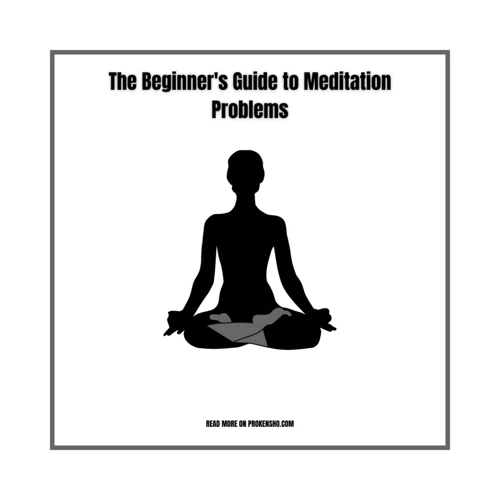
Meditation can be an amazing tool for spiritual growth, but it can also be a challenge to maintain a consistent practice. There are various obstacles that can get in the way of a regular practice, such as lack of time, distractions, and negative thoughts. However, there are solutions to these challenges that can help you stay committed to your practice and reap the full benefits of meditation.
One of the main challenges of maintaining a regular meditation practice is finding the time to do it. Many people have busy schedules and find it hard to carve out time for meditation. One solution to this challenge is to schedule a specific time each day for your practice, even if it’s just for a few minutes. You can also try meditating in the morning before your day begins or in the evening before bed. Building meditation into your daily routine can help make it a consistent habit.
Another challenge is dealing with distractions during your practice. Whether it’s external noise, mental chatter, or physical discomfort, distractions can make it difficult to focus on your meditation. One solution to this challenge is to acknowledge the distractions and then let them go, returning your focus to your breath or mantra. Another solution is to use guided meditations, which can help you stay focused and engaged.
Negative thoughts, such as doubt or self-criticism, can also be a challenge in maintaining a regular meditation practice. These thoughts can make you feel discouraged or unmotivated, and can even lead you to give up your practice altogether. One solution to this challenge is to cultivate self-compassion and a non-judgmental attitude towards yourself. Remember that it’s normal to have thoughts and distractions during meditation, and that the practice is about acceptance and non-attachment.
Finally, it can be helpful to seek support from a community or teacher. Having a meditation group or teacher to turn to can give you accountability, motivation, and guidance. Many meditation teachers offer online or in-person classes, retreats, or one-on-one sessions. You can also join a meditation group or community online or in your local area.
By acknowledging the challenges of maintaining a regular meditation practice and exploring solutions, you can create a sustainable and fulfilling practice that supports your spiritual growth and well-being.
The Science Behind Meditation and Spiritual Awakening
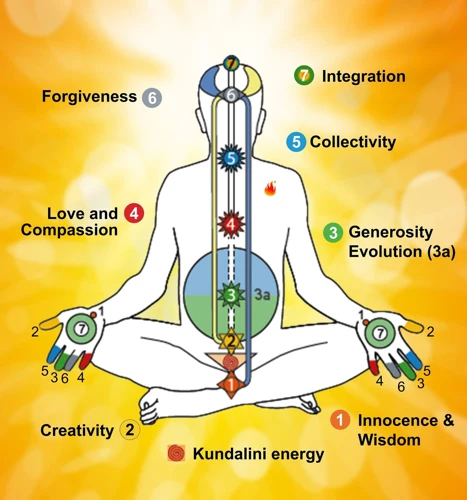
Meditation has been practiced for thousands of years in various spiritual and cultural traditions, but only recently has its impact on the brain been extensively studied by modern science. Numerous studies have shown that regular meditation practice can have significant positive effects on brain structure and function, leading to improved emotional regulation, increased attention and concentration, reduced stress and anxiety, and enhanced cognitive performance.
One of the key mechanisms by which meditation affects the brain is through the modulation of the default mode network (DMN), a network of brain regions that are active when the mind is at rest and not engaged in external tasks. The DMN is involved in self-referential thinking, mind-wandering, and rumination, which are all associated with negative emotions and feelings of dissatisfaction. Studies have shown that experienced meditators have decreased DMN activity and increased connectivity between other brain networks, indicating a shift from self-referential thought to a more present-focused and interconnected state.
Meditation has also been found to affect the structure of the brain itself. Regular practice has been associated with increased cortical thickness in areas involved in attention, sensory perception, and emotional regulation, as well as decreased gray matter density in the amygdala, a brain region involved in fear and anxiety. These changes may underlie the enhanced emotional regulation and reduced stress and anxiety seen in meditators.
Meditation has been linked to altered activity in the prefrontal cortex, a region important for executive functions such as decision-making, problem-solving, and impulse control. Studies have shown that regular meditation practice can increase prefrontal activity and improve cognitive performance on tasks such as attentional control and working memory.
These findings suggest that meditation has not only spiritual but also scientific benefits for the mind and body. Through its effects on brain structure and function, it can promote emotional regulation, cognitive performance, and overall well-being. As more research is conducted, the scientific underpinnings of meditation and its impact on spiritual awakening and oneness will become increasingly clear.
Spiritual Awakening Stories from Real Meditators
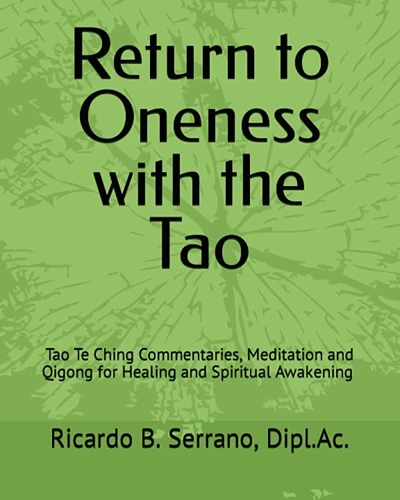
Throughout history, many individuals have turned to meditation as a means of spiritual exploration and awakening. These real meditators have varied backgrounds, beliefs, and experiences, but all share a common thread of seeking greater self-awareness and connection with something larger than themselves.
One example of a spiritual awakening through meditation comes from Jack Kornfield, a teacher and author in the mindfulness meditation tradition. After years of practicing meditation and studying with various teachers, Kornfield found himself at a retreat where he experienced a profound realization of interconnectedness with all beings. He felt a sense of compassion and connection that he had not felt before, and this experience deeply impacted his understanding of himself and the world around him.
Another example of a spiritual awakening through meditation is shared by Eckhart Tolle, a bestselling author and speaker on spiritual growth and awakening. Tolle experienced a profound shift in consciousness while in the midst of a deep depression. During this time, he began to question the patterns of thought that had led to his depression and began to observe his thought processes rather than getting caught up in them. Through this observation, he discovered a deeper sense of presence and awareness that changed the course of his life and led to the publication of his bestselling book, “The Power of Now.”
One more inspiring example is that of Sharon Salzberg, a teacher and author in the loving-kindness meditation tradition. After studying various meditation techniques for many years, Salzberg had a deep realization of the interconnectedness of all beings during a meditation retreat. She experienced a deep sense of compassion and sense of purpose in her life that led her to dedicate herself to teaching meditation and helping others find inner peace and awakening.
These stories, and countless others like them, serve as powerful reminders of the transformative potential of meditation for spiritual growth and awakening. Through consistent practice and dedication, we too can tap into the limitless potential of our inner light and cultivate greater awareness, compassion, and connection with ourselves and the world around us.
The Connection between Meditation and Oneness
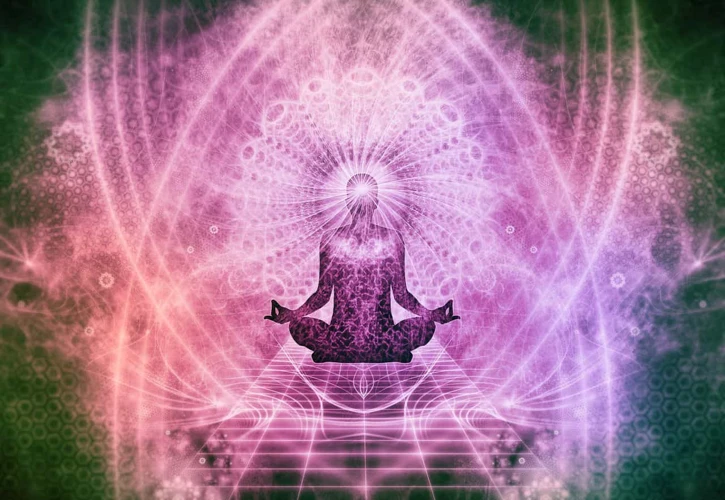
Meditation has been known to have a profound impact on an individual’s spiritual journey, and one of its key aspects is Oneness. Oneness refers to the concept of unity, interconnectedness, and the dissolution of the ego. Through meditation, one can experience a stronger connection to themselves, the world, and the universe.
Meditation helps one shift their focus from the physical body and external distractions to the present moment and internal awareness. This shift in focus allows for a deeper understanding of the self and the realization that we are all connected. Through consistent practice, meditation can help an individual access higher states of consciousness that allow for a greater sense of Oneness.
Meditation allows an individual to access their deeper self, where they can experience a sense of unity with everything around them. This unity can be felt on a physical, emotional, and spiritual level, leading to a greater understanding of the interconnectedness of all things. The feeling of Oneness can also lead to a more compassionate and kind approach towards others, as one recognizes that they are all connected.
Meditation can lead to the dissolution of the ego, which is often the root cause of separation and division. The ego is the part of the self that identifies as separate from others and seeks to maintain a sense of individuality. By letting go of the ego through meditation, an individual can experience a sense of unity and Oneness with everything around them.
Meditation plays a crucial role in experiencing Oneness. Through the practice of meditation, one can access higher states of consciousness, a deeper understanding of the self, and a stronger connection to the world around them. The dissolution of the ego and the recognition of interconnectedness can lead to a more compassionate and kind approach towards others, ultimately leading to a greater sense of Oneness.
The Relevance and Integration of Meditation in Different Spiritual Traditions
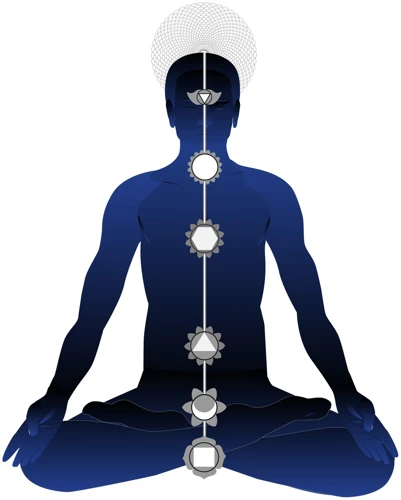
Meditation has been an integral part of many spiritual traditions for centuries. It is a powerful tool that can be used to cultivate self-awareness, tranquility, and spiritual awakening. While different spiritual traditions have varying beliefs and practices, meditation is often a common thread that unites them.
In Buddhist traditions, meditation plays a central role in achieving enlightenment or reaching Nirvana. Practitioners engage in mindfulness meditation, focusing on breathing and becoming fully present in the moment. Similarly, in Hinduism, the practice of meditation is used to achieve liberation from the cycle of reincarnation and merging with the divine. The meditation techniques used in Hinduism include mantra meditation, where a sacred word or phrase is repeated during meditation, and visualization meditation, where the meditator focuses on an image or deity.
In the Christian tradition, contemplative prayer is a form of meditation that involves opening oneself to God’s presence and listening for guidance. This is often done through silent meditation or reciting a prayer repeatedly. In Islamic mystical traditions, Sufism, meditation is used to connect with the divine and achieve spiritual wholeness. This is done through various techniques including breath control, repetition of God’s name, and visualization.
In addition to these spiritual traditions, meditation has been incorporated into secular practices such as mindfulness-based stress reduction (MBSR) and cognitive-behavioral therapy (CBT). These practices draw on meditation techniques to promote emotional regulation, stress reduction, and overall well-being.
The integration of meditation into various spiritual traditions highlights its versatility and accessibility. Regardless of one’s religious or spiritual background, meditation can be practiced as a tool for cultivating inner peace, personal growth, and spiritual awakening. It allows one to quiet the mind and connect with something greater, whether it be a divine presence, nature, or one’s own inner being.
As such, the relevance and integration of meditation in different spiritual traditions underscores its universality and timelessness. It is a practice that transcends cultural and religious boundaries and can be utilized by anyone seeking to deepen their spiritual practice and achieve greater levels of self-awareness and oneness.
The Role of Intuition in Your Meditation Journey

Throughout your meditation journey, intuition can play a pivotal and transformative role in guiding you towards deeper self-awareness and spiritual growth. Intuition is a form of inner knowing that bypasses rational thought and worldly distractions, allowing you to tap into your inner wisdom and insight. It is often described as a gut feeling or a sudden knowing, and it can manifest through sensations, images, or messages.
When meditating, intuition can emerge in various ways. It may come as a sudden insight or realization, a visual or sensory experience, or an inner voice or message. These intuitive experiences are not always easily explained or rationalized, but they can offer profound guidance and understanding.
One way to cultivate your intuition through meditation is to focus on your inner sensations and feelings. By being mindful of the sensations in your body, you can develop a deeper awareness of subtle shifts and changes that may indicate a deeper inner knowing. Paying attention to your breath and observing the thoughts and emotions that arise can also help you tune into your intuition.
Another way to access your intuition through meditation is to set an intention for your practice. Before beginning your practice, take a moment to connect with your inner guidance and ask for insight or clarity on a particular question or issue. Stay open and receptive to any intuitive messages that may arise during your meditation.
It’s important to note that intuition should not be seen as a replacement for rational thought or critical thinking, but rather as a complementary aspect of your decision-making process. By integrating both intuition and rationality, you can make more informed and authentic choices that align with your inner truth and purpose.
Ultimately, intuition can serve as a powerful tool for navigating your spiritual journey and cultivating a deeper connection to your higher self. Through meditation and mindfulness practices, you can develop your intuitive abilities and access the wisdom and insight that lies within you. Trusting and following your intuition can lead to profound shifts in your awareness and a deeper sense of connection to the world around you.
The Importance of Compassion in Your Spiritual Path

Compassion is a vital aspect of one’s spiritual path as it enables individuals to transcend the ego and cultivate a sense of interconnectedness with all beings. Research shows that cultivating compassion through meditation can enhance one’s overall well-being, reduce stress, and promote altruistic behavior.
Compassion involves not only feeling empathy for others but also taking action to alleviate their suffering. Through meditation, individuals can develop a sense of inner peace and calm, allowing them to respond to others with kindness and empathy.
One of the most essential teachings of spiritual traditions is to treat others with kindness and compassion. By embodying these qualities, individuals can create a more harmonious and inclusive world. Meditation practices that cultivate compassion include loving-kindness meditation, which involves directing feelings of love and kindness towards oneself and others, and Tonglen meditation, which involves imagining taking in the suffering of others and sending them feelings of love and compassion.
Developing compassion also involves overcoming biases and prejudices toward others. Meditation can help individuals to become more aware of their tendencies towards judgment and discrimination and to develop greater empathy towards all beings.
In addition to benefiting individuals, compassion can also have positive ripple effects in the wider world. As individuals cultivate compassion, they may become motivated to take action to address societal issues such as poverty, discrimination, and inequality.
Ultimately, compassion is an essential component of spiritual awakening and oneness. By developing a sense of empathy and interconnectedness with all beings, individuals can transcend their egos and connect more deeply with the universe.
Meditation and Self-Care: Supporting Your Mental Health and Well-being

In today’s fast-paced world, self-care has become a crucial component of maintaining good mental health and well-being. In this context, the practice of meditation is gaining increasing recognition for its potential in supporting self-care and promoting mental wellness. Meditation can be a powerful tool for managing stress, anxiety, and other mental health issues that can impact our daily lives.
Through practicing meditation, individuals can cultivate a heightened sense of self-awareness and emotional regulation. Meditation can improve one’s ability to focus and concentrate, which can enhance work and academic performance. Additionally, research has shown that meditation can positively impact physical health, with benefits such as lower blood pressure and improved immune system function.
Meditation can take many forms, including mindfulness, loving-kindness, and chakra meditation. Each form has its unique benefits and can be tailored to meet an individual’s needs. Regardless of the specific technique used, regular meditation practice can help individuals build resilience to stress and promote overall well-being.
Incorporating meditation into one’s self-care routine can be a simple yet effective way to improve mental health and well-being. Starting with just a few minutes a day can have a significant impact, and gradually increasing the duration and frequency of practice can lead to long-term benefits.
It is important to note that while meditation can be a helpful tool in promoting mental health and well-being, it should not be used as a replacement for medical treatment or therapy. Rather, it can be used as a complementary practice alongside other forms of self-care.
Meditation is increasingly recognized for its potential benefits in supporting mental health and well-being. Regular practice of meditation can improve emotional regulation, concentration, and physical health. By incorporating meditation into one’s self-care routine, individuals can build resilience to stress and promote overall well-being.
Meditation, Creativity, and Inspiration: Nurturing Your Spirituality through Art, Music, and Nature

Meditation is not just a tool for achieving spiritual growth and self-realization. It can also unlock your creativity, enhance your appreciation for beauty and art, and inspire you to connect with nature. Many accomplished artists and musicians have credited their meditation practices for providing a deep wellspring of creative energy and inspiration.
Through meditation, you can access a deep state of consciousness that is free from distractions and allows for a greater sense of clarity and focus. This clarity and focus can help you tap into the creative, intuitive parts of your mind that might be otherwise hidden or suppressed. By quieting your mind and cultivating awareness, you create the space and opportunity for new ideas to emerge.
In addition to enhancing your creativity, meditation can also deepen your connection with music and art. By listening to music or looking at art while in a meditative state, you can cultivate a more profound appreciation for the beauty and complexity of the piece. Many people have found that they can experience a more intense and pleasurable response to art when they view it with a clear, meditative mind.
Connecting with nature is another way that meditation can inspire creativity and spirituality. When you take the time to focus on the natural world around you, you can gain a deeper appreciation for the interconnectedness of all things. This awareness can lead to a greater sense of gratitude and reverence for the earth and its inhabitants, which can fuel your creative and spiritual pursuits.
To explore the link between meditation, creativity, and inspiration, try incorporating mindfulness practices into your artistic endeavors. Set aside time for meditation or yoga before beginning a creative project to center and focus your mind. Listen to music or view art while in a meditative state to deepen your appreciation for the piece. Or spend time in nature while meditating to cultivate a greater connection with the environment.
Remember, meditation is a personal practice that can be tailored to each individual’s needs and goals. Whether you are an artist, musician, or simply seeking to cultivate more creativity and inspiration in your life, regular meditation practice can help unlock your full potential and connect you with your inner creativity and spirituality.
The Future of Meditation and Spiritual Awakening: Innovations, Trends, and Developments

As the practice of meditation continues to gain popularity and recognition as a valuable tool for spiritual awakening, there is no doubt that innovations, trends, and developments will shape its future.
One potential development is the incorporation of technology into meditation practices. Already, there are apps and devices designed to assist meditation, such as guided meditation apps, brainwave monitoring headbands, and virtual meditation experiences. As technology continues to advance, it’s possible that more sophisticated tools will become available, potentially making meditation even more accessible and effective for people.
Another trend in meditation is the integration of different modalities and traditions. As people continue to seek out spiritual experiences and techniques that resonate with them, it’s possible that meditation practices will become even more diverse and interconnected. This might mean the integration of practices like chanting, breathwork, and dance with traditional meditation practices, as well as the incorporation of spiritual traditions from around the world.
There may also be a greater emphasis on the scientific study of meditation and its effects on the brain and body. As more research is conducted, we may gain a greater understanding of the mechanisms behind the benefits of meditation, and how different types of meditation affect different people. This could potentially lead to a more personalized approach to meditation practice, tailored to individual needs and goals.
However, as with any trend or development, there are also potential risks and ethical concerns. For example, as technology becomes more ubiquitous in meditation practice, there may be a risk of losing touch with the embodied and human-centered aspects of the practice. Similarly, as meditation becomes more popular and commodified, there may be a risk of losing sight of its spiritual roots and becoming overly focused on individualized self-improvement.
Ultimately, the future of meditation and spiritual awakening is uncertain, but one thing is clear: the practice will continue to evolve and adapt to meet the needs of those seeking spiritual connection and transformation. Whether through technology, integration with other modalities, or scientific advancements, meditation will likely continue to be a valuable tool for cultivating self-awareness, compassion, and oneness with the world.
The Limitless Potential of Your Meditation Practice: Beyond Spiritual Awakening and Oneness
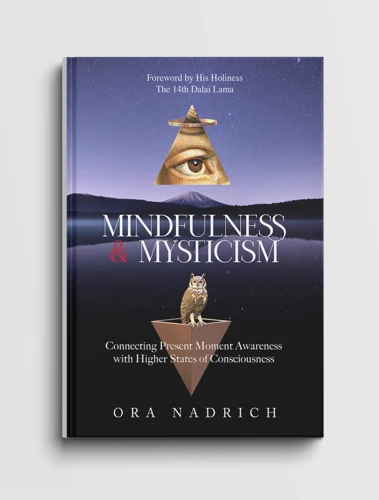
Meditation has been known to have numerous spiritual, mental, and physical benefits. From promoting self-realization and oneness to cultivating mindfulness and reducing stress, meditation can radically transform our lives. However, the potential of meditation extends far beyond these known benefits. In fact, the possibilities of what can be achieved through meditation are limitless.
One of the most exciting aspects of meditation is its ability to unlock our full potential. By accessing deeper levels of consciousness, we can tap into our inner resources and become aware of our innate abilities. For example, meditation can help us develop intuition, creativity, and spiritual insight. It can also improve our memory, focus, and cognitive function, allowing us to think more clearly and make better decisions.
Meditation can help us connect with our higher selves and tap into the universal consciousness. This can result in profound spiritual experiences that transcend our everyday reality. We may gain a deeper understanding of the interconnectedness of all things, and realize the interconnectedness of our own mind, body, and spirit.
Beyond individual transformation, meditation can also have a transformative impact on society. Through meditation, we can develop compassion and empathy for others, and become more aware of the interconnectedness of our actions and their impact on the world around us. We may feel called to engage in social and environmental causes, or to promote peace and harmony in our communities.
The potential of meditation is truly limitless, and as we continue to explore its possibilities, we are likely to discover new benefits and insights. However, it’s important to remember that the full benefits of meditation can only be realized through consistent and dedicated practice. With time, patience, and an open mind, meditation can unlock our full potential and help us embrace the infinite possibilities of our existence.
The Ethics and Social Responsibility of a Meditator: Cultivating Consciousness and Compassion for the World
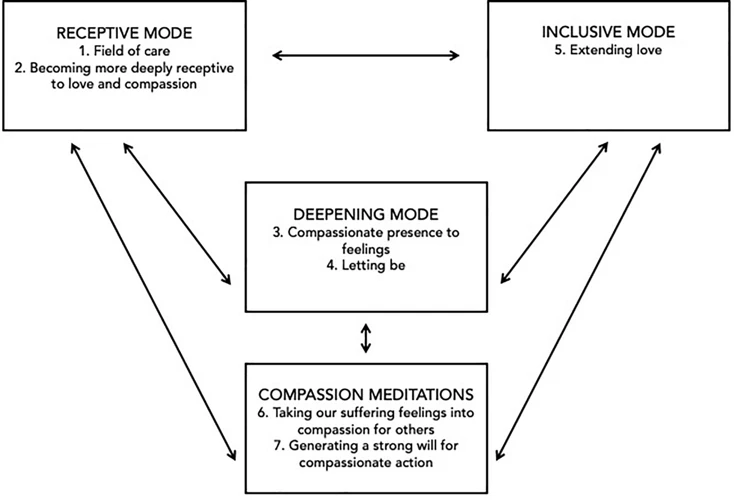
As a meditator, you have a unique opportunity to cultivate consciousness and compassion for the world around you. This means not only becoming more attuned to your own thoughts and feelings, but also developing a deeper understanding and empathy for others.
One important ethical principle that underpins many spiritual traditions is the practice of ahimsa, or non-violence. This includes not only refraining from physical harm, but also from verbal and mental aggression. By practicing meditation and developing greater awareness of your own thoughts and emotions, you can begin to recognize and avoid harmful behavior towards others.
Another key aspect of social responsibility for meditators is the cultivation of compassion. This means not only feeling empathy for others, but also acting in ways that alleviate the suffering of those around you. This can take many forms, from volunteering your time and resources to supporting charitable causes, to simply listening deeply and offering a kind word to someone in need.
Additionally, meditators can also contribute to creating a more just and equitable world by cultivating awareness of their own biases and prejudices. This means recognizing where our own experiences and beliefs may bias our understanding and treatment of others, and working to overcome these limitations through self-reflection, education, and engagement with diverse perspectives.
Ultimately, the ethics and social responsibility of a meditator are about bringing greater awareness and compassion into our relationships with others and the wider world. By cultivating these qualities through our meditation practice and actively applying them in our daily lives, we can contribute to a more peaceful, harmonious, and just world for all.
The Integration of Meditation and Action: Applying Your Spiritual Insights to Your Daily Life
Meditation is not just about sitting in silence and turning within, but also about using the insights gained from this practice to bring positive change in your daily life. The integration of meditation and action is an important aspect of your spiritual journey as it allows you to apply your spiritual insights to your daily life and make a positive impact on the world around you.
One of the key ways to integrate meditation and action is by cultivating mindfulness in every moment of your life. Being mindful allows you to stay present in the moment and respond to situations with clarity rather than reacting impulsively. Mindfulness can help you break free from negative patterns of thought and behavior and cultivate positive qualities like empathy, compassion, and gratitude.
Another way to integrate meditation and action is by setting intentions and goals based on your insights from meditation. When you set intentions based on your spiritual insights, you can align your actions with your deepest values and cultivate a sense of purpose in your life. This can help you stay motivated and focused on your goals and create a positive impact on those around you.
Service is another important aspect of integrating meditation and action. When you use your spiritual insights to serve others, you can create a sense of connection and shared purpose that can help you feel more fulfilled and engaged in your life. Service can take many forms, from volunteering in your community to showing kindness and compassion to those around you.
Finally, it is important to remember that integration is a process that takes time and patience. It is not enough to simply meditate and hope that your life will change automatically. You must actively engage with your spiritual insights and take action to apply them in your daily life. This requires discipline, commitment, and a willingness to embrace change.
The integration of meditation and action is an essential aspect of your spiritual journey. It allows you to apply your spiritual insights to your daily life and make a positive impact on the world around you. By cultivating mindfulness, setting intentions, serving others, and staying committed to the process of integration, you can create a life of meaning, purpose, and fulfillment.
Closing Thoughts: Embracing Your Inner Light through Meditation
As we come to the end of this article exploring the role of meditation in spiritual awakening, it’s important to reflect on the idea of “embracing your inner light”. This concept is about recognizing and connecting with the essence of who you truly are – the spark of divinity within you.
Meditation can help us access this inner light by quieting the distractions and mental chatter that often cloud our awareness. By turning inward and focusing our attention on the present moment, we can develop a deeper sense of self-awareness and cultivate a greater connection to our spiritual nature.
But embracing our inner light is not just about personal growth and enlightenment. It’s also about making a positive impact on the world around us. When we recognize and honor the divinity within ourselves, we can extend that same compassion and understanding to others. We can become beacons of love and light, inspiring those around us to do the same.
So, whether you’re just beginning your meditation practice or have been meditating for years, remember that your inner light is always there, waiting to be acknowledged and celebrated. Take time each day to connect with this sacred aspect of yourself and allow it to shine bright.
In doing so, you can not only experience a deep sense of peace and joy, but also contribute to the collective awakening of humanity. May your journey towards self-discovery and oneness continue to unfold with grace and wisdom.
Frequently Asked Questions
What is spiritual awakening?
Spiritual awakening is a process of realizing our true nature beyond our ego and conditioned beliefs. It involves a shift in consciousness that brings greater awareness, insight, and connection to the unity of all things.
How does meditation help with spiritual awakening?
Meditation helps us to still the mind and cultivate inner peace, which allows us to access deeper levels of awareness and insight. Through meditation, we can become more present and tap into the wisdom and interconnectedness of our true nature.
What are some benefits of meditation for self-realization and oneness?
Meditation can help to reduce stress, improve mental clarity and focus, enhance creativity and intuition, increase compassion and empathy, and promote a greater sense of inner peace and well-being.
What are some common meditation techniques for enhancing spiritual practice?
Some common meditation techniques include mindfulness meditation, loving-kindness meditation, chakra meditation, transcendental meditation, and yoga meditation.
What is the role of a meditation teacher in a spiritual journey?
A meditation teacher can provide guidance and support in developing and deepening one’s meditation practice. They may offer insights, techniques, and resources to help cultivate greater awareness, understanding, and connection.
What are some challenges in maintaining a consistent meditation practice, and how can they be overcome?
Some common challenges include distraction, restlessness, and mental resistance. To overcome these challenges, it can be helpful to create a consistent routine, set realistic goals, and use tools such as guided meditations, timer apps, and accountability partners.
What does the science say about meditation and spiritual awakening?
Research has shown that meditation can have a range of positive effects on the brain and body, including reducing stress, improving cognitive function, boosting immune system function, and increasing feelings of well-being.
What are some examples of real-life spiritual awakening stories from meditators?
Individuals have reported experiencing profound shifts in consciousness, greater self-awareness and self-acceptance, increased empathy and compassion, and a heightened sense of interconnectedness and oneness with all things.
Why is compassion an important aspect of the spiritual path?
Compassion involves recognizing the interconnectedness of all things and responding with kindness and empathy towards oneself and others. It can help to promote greater inner peace, acceptance, and connection with the world around us.
How can meditation and self-care support mental health and well-being?
Meditation and self-care practices can help to reduce stress, anxiety, and depression, provide greater clarity and perspective, and promote a sense of overall well-being and balance.








